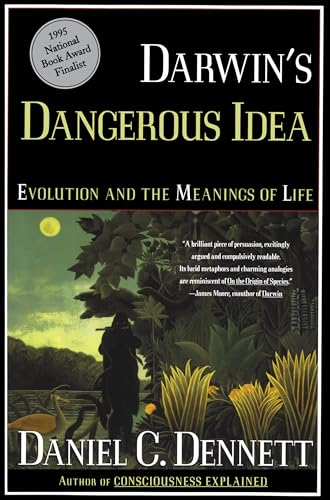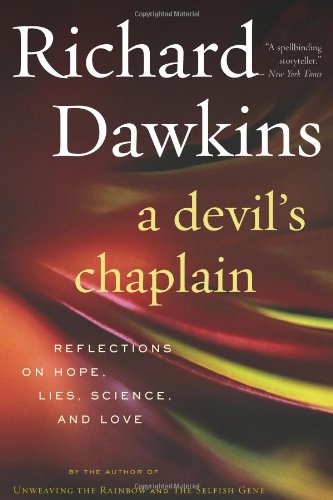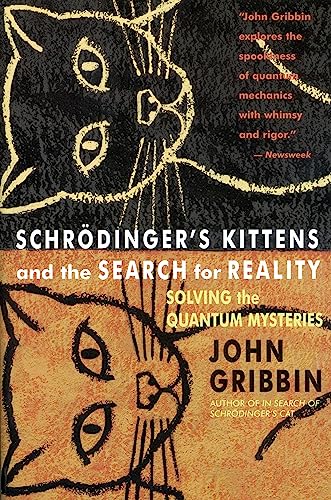Science and More!
Explore our curated list of science books! Dive into fascinating topics, discoveries, and more with the best reads for science enthusiasts and curious minds.

Book
The Selfish Gene
by Richard Dawkins
Science need not be dull and bogged down by jargon, as Richard Dawkins proves in this entertaining look at evolution. The themes he takes up are the concepts of altruistic and selfish behaviour; the genetical definition of selfish interest; the evolution of aggressive behaviour; kinshiptheory; sex ratio theory; reciprocal altruism; deceit; and the natural selection of sex differences. 'Should be read, can be read by almost anyone. It describes with great skill a new face of the theory of evolution.' W.D. Hamilton, Science

Book
Hyperspace
by Michio Kaku
From the renowned theoretical physicist and national bestselling author of The God Equation comes the first book-length exploration of the most exciting development in modern physics: the theory of 10-dimensional space. "Among the best of its genre to appear in recent years...What a wonderful adventure it is, trying to think the unthinkable!" —The New York Times Book Review The theory of hyperspace, which Michio Kaku pioneered, may be the leading candidate for the Theory of Everything that Einstein spent the remaining years of his life searching for.




Book
Mutants
by Armand Marie Leroi
Visit Armand Marie Leroi on the web: http://armandleroi.com/index.html Stepping effortlessly from myth to cutting-edge science, Mutants gives a brilliant narrative account of our genetic code and the captivating people whose bodies have revealed it—a French convent girl who found herself changing sex at puberty; children who, echoing Homer’s Cyclops, are born with a single eye in the middle of their foreheads; a village of long-lived Croatian dwarves; one family, whose bodies were entirely covered with hair, was kept at the Burmese royal court for four generations and gave Darwin one of his keenest insights into heredity. This elegant, humane, and engaging book “captures what we know of the development of what makes us human” (Nature).

Book
The Stranger
by Albert Camus
With the intrigue of a psychological thriller, The Stranger—Camus's masterpiece—gives us the story of an ordinary man unwittingly drawn into a senseless murder on an Algerian beach. With an Introduction by Peter Dunwoodie; translated by Matthew Ward. Behind the subterfuge, Camus explores what he termed "the nakedness of man faced with the absurd" and describes the condition of reckless alienation and spiritual exhaustion that characterized so much of twentieth-century life. “The Stranger is a strikingly modern text and Matthew Ward’s translation will enable readers to appreciate why Camus’s stoical anti-hero and devious narrator remains one of the key expressions of a postwar Western malaise, and one of the cleverest exponents of a literature of ambiguity.” –from the Introduction by Peter Dunwoodie First published in 1946; now in translation by Matthew Ward.

Book
The Trial
by Franz Kafka
From one of the greatest writers of the twentieth century, the author of The Metamorphosis: Written in 1914 but not published until 1925, a year after Kafka’s death, The Trial is the terrifying tale of Josef K., a respectable bank officer who is suddenly and inexplicably arrested and must defend himself against a charge about which he can get no information. Whether read as an existential tale, a parable, or a prophecy of the excesses of modern bureaucracy wedded to the madness of totalitarianism, The Trial has resonated with chilling truth for generations of readers.


Book
Nineteen Eighty-four
by George Orwell
Eternal warfare is the price of bleak prosperity in this satire of totalitarian barbarism.

Book
A Short History of Nearly Everything
by Bill Bryson
One of the world’s most beloved writers and New York Times bestselling author of A Walk in the Woods and The Body takes his ultimate journey—into the most intriguing and intractable questions that science seeks to answer. In A Walk in the Woods, Bill Bryson trekked the Appalachian Trail—well, most of it. In A Sunburned Country, he confronted some of the most lethal wildlife Australia has to offer. Now, in his biggest book, he confronts his greatest challenge: to understand—and, if possible, answer—the oldest, biggest questions we have posed about the universe and ourselves. Taking as territory everything from the Big Bang to the rise of civilization, Bryson seeks to understand how we got from there being nothing at all to there being us. To that end, he has attached himself to a host of the world’s most advanced (and often obsessed) archaeologists, anthropologists, and mathematicians, travelling to their offices, laboratories, and field camps. He has read (or tried to read) their books, pestered them with questions, apprenticed himself to their powerful minds. A Short History of Nearly Everything is the record of this quest, and it is a sometimes profound, sometimes funny, and always supremely clear and entertaining adventure in the realms of human knowledge, as only Bill Bryson can render it. Science has never been more involving or entertaining.

Book
The Elegant Universe
by Brian Greene
Introduces the superstring theory that attempts to unite general relativity and quantum mechanics

Book
Miss Lonelyhearts & The Day of the Locust
by Nathanael West
Two classic short stories, one about a male reporter who writes an advice column, and the other, about people who have migrated to California in expectation of health and ease.


